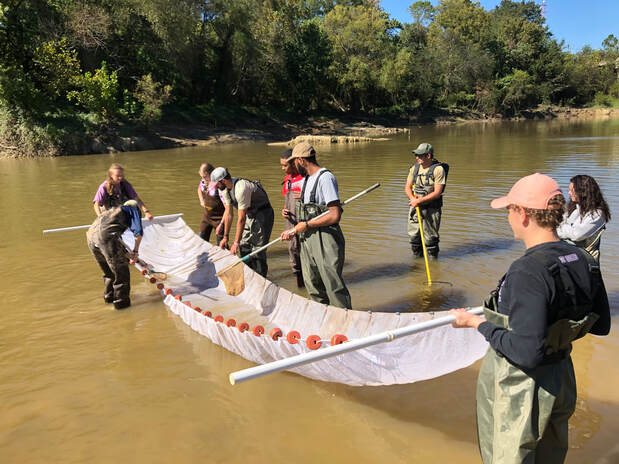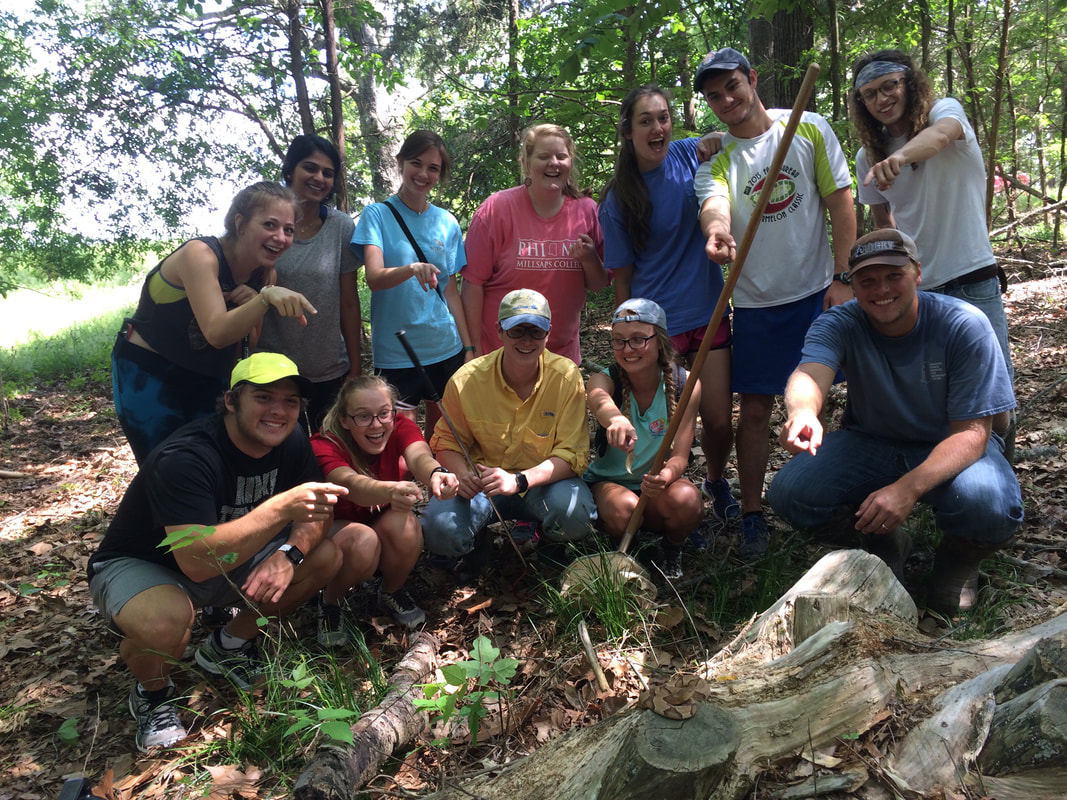Courses Offered at Millsaps College

Botany BIOL 1010
An introduction to the tremendous diversity of non-animal organisms, the mechanisms of evolution, and an in-depth understanding of the structure and function of plants.
General Zoology BIOL 1020
An introduction to the structure, function, and relationships among invertebrate and vertebrate animals. Laboratory includes a survey of animal diversity, histology, and anatomy.
Ornithology BIOL 3310
Evolution, form and function, behavior, life history, ecology, and conservation of birds. Techniques for the study of birds will be taught in laboratory and field settings.
Herpetology BIOL 3370
Life history, ecology, taxonomy, and conservation of reptiles and amphibians. Lab and field trips emphasize study techniques and the identification of herpetofauna in Mississippi and the southeastern United States.
Wetland Ecology BIOL 3380
Physical and ecological processes of freshwater and estuarine wetlands. Emphasis is on natural wetlands, wetland plants and wildlife, and conservation, restoration, and management of wetlands; includes laboratory with outdoor field trips.
Vertebrate Zoology BIOL 3610
An in-depth study of vertebrate zoology with focus on vertebrate ecology, behavior, morphology, life history, and physiology. Lab and field trips will emphasize sampling techniques and the identification of local vertebrate species in Mississippi and the southeastern United States.
Biostatistics & Experimental Design BIOL 3650
Biostatistics & Experimental Design familiarizes students with the role of experiments in scientific discovery, and with basic concepts and tools of experimental design and statistical analysis in biological research.
Exploring Mississippi's Biodiversity BIOL 3750 (Summer Field Course)
This summer field course will explore Mississippi’s rich biological heritage by observing the diverse habitats and their associated plant and animal communities. We will explore Mississippi's biodiversity through the lens of habitats: we will explore uplands, lowlands, riverine, and wetlands, while talking about ecological, geological, and hydrological processes.
Finding the Forgotten Crawfish Frog BIOL 3750 (In-Semester Research Course)
A key component to conserving organisms is understanding their historical and current distributions. The Crawfish Frog, one of Mississippi's rarest amphibians, was historically found in central Mississippi but has not been observed in ~20 years. The goal of this course is to familiarize students with all phases of research - completing background studies; planning & conducting field surveys; collecting, curating, & analyzing data; and writing results - by investigating the current status of Crawfish Frogs in central Mississippi.
For Millsaps students, more information is available at the Millsaps Course Connect website.
An introduction to the tremendous diversity of non-animal organisms, the mechanisms of evolution, and an in-depth understanding of the structure and function of plants.
General Zoology BIOL 1020
An introduction to the structure, function, and relationships among invertebrate and vertebrate animals. Laboratory includes a survey of animal diversity, histology, and anatomy.
Ornithology BIOL 3310
Evolution, form and function, behavior, life history, ecology, and conservation of birds. Techniques for the study of birds will be taught in laboratory and field settings.
Herpetology BIOL 3370
Life history, ecology, taxonomy, and conservation of reptiles and amphibians. Lab and field trips emphasize study techniques and the identification of herpetofauna in Mississippi and the southeastern United States.
Wetland Ecology BIOL 3380
Physical and ecological processes of freshwater and estuarine wetlands. Emphasis is on natural wetlands, wetland plants and wildlife, and conservation, restoration, and management of wetlands; includes laboratory with outdoor field trips.
Vertebrate Zoology BIOL 3610
An in-depth study of vertebrate zoology with focus on vertebrate ecology, behavior, morphology, life history, and physiology. Lab and field trips will emphasize sampling techniques and the identification of local vertebrate species in Mississippi and the southeastern United States.
Biostatistics & Experimental Design BIOL 3650
Biostatistics & Experimental Design familiarizes students with the role of experiments in scientific discovery, and with basic concepts and tools of experimental design and statistical analysis in biological research.
Exploring Mississippi's Biodiversity BIOL 3750 (Summer Field Course)
This summer field course will explore Mississippi’s rich biological heritage by observing the diverse habitats and their associated plant and animal communities. We will explore Mississippi's biodiversity through the lens of habitats: we will explore uplands, lowlands, riverine, and wetlands, while talking about ecological, geological, and hydrological processes.
Finding the Forgotten Crawfish Frog BIOL 3750 (In-Semester Research Course)
A key component to conserving organisms is understanding their historical and current distributions. The Crawfish Frog, one of Mississippi's rarest amphibians, was historically found in central Mississippi but has not been observed in ~20 years. The goal of this course is to familiarize students with all phases of research - completing background studies; planning & conducting field surveys; collecting, curating, & analyzing data; and writing results - by investigating the current status of Crawfish Frogs in central Mississippi.
For Millsaps students, more information is available at the Millsaps Course Connect website.
